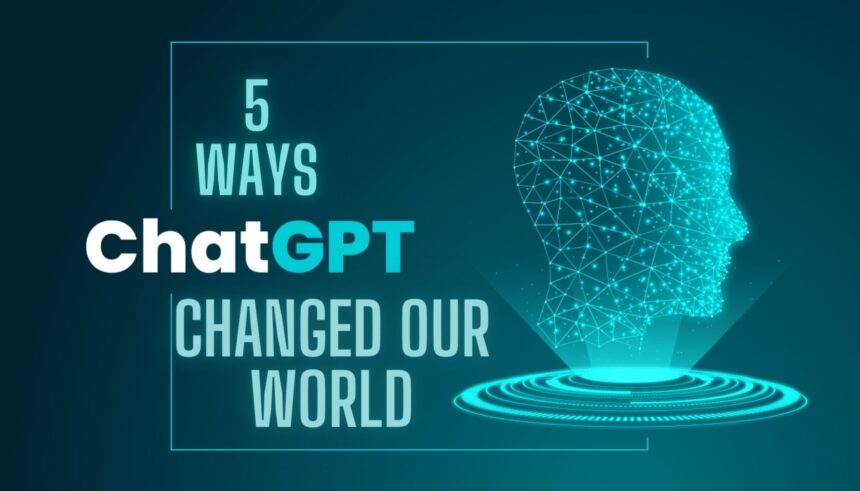A year ago, OpenAI introduced ChatGPT, a smart chatbot, and it quickly changed how we use technology. In due time, it became very popular, faster than anything we’ve seen before, even faster than how people started using the internet. Presently, more than a billion people use ChatGPT through well-known apps like Bing, Skype, and Snapchat. OpenAI is doing great because of it, expecting to make more than 1 billion US dollars a year.
ChatGPT’s success shows us how much people want this kind of technology. It spread so quickly because we already had the internet and smartphones ready for it. It’s not just about how many people use ChatGPT, but also about showing us what it’s like to live in a future where smart AI is part of our everyday life. It does more than simple tasks, making AI a familiar and helpful friend for everyone.
Here are 5 ways how it changed our world:
1. Ensuring AI Security
Governments around the world are starting to understand how important it is to control and use artificial intelligence (AI) like ChatGPT safely. In the USA, President Joe Biden has taken a big step by introducing new rules. These rules are about making AI safe and making sure it’s used in a way that is fair to everyone. He wants to make sure America keeps leading in AI, but in a responsible way. While some countries like the USA and UK are actively working on AI safety and regulation, others like Australia are still trying to catch up. This shows how different countries are responding to the growing importance of AI in our world.
2. Job security
Before ChatGPT came into the picture, people working in factories or doing other hands-on jobs were the ones most worried about robots taking over their work. But now, with ChatGPT and similar AI tools becoming more common, even people in office jobs are getting concerned. For example, graphic designers and lawyers, who never thought AI could impact their work, are now feeling unsure about their job security. A recent study showed that since ChatGPT came around, the money people make from writing and editing jobs on online platforms has dropped by over 10%. This might be a sign of bigger changes coming in the job market.
3. AI’s Impact on Copyright Laws
Authors worldwide are upset because big AI models like ChatGPT were trained using lots of books, including theirs, without asking them. These AI models can talk about all sorts of topics because they learned from books on those topics. Even books written by AI experts, like some authors, were used, which is quite ironic.
Now, there are legal cases happening in the US to see if using these books without permission breaks copyright laws. Some people have even noticed that ChatGPT sometimes repeats parts of these books exactly as they are written. This has made the situation even more complicated.
4. End of essay
When ChatGPT came out, many schools quickly banned it. They were worried because if ChatGPT can write essays, what happens to homework? But writing essays isn’t just about making more essays. It helps students learn how to research, communicate better, think critically, and understand subjects deeply. These skills are important, even if ChatGPT can help with some parts of the process.
5. False information
There’s a growing concern about how AI tools like ChatGPT could be used to spread fake information. This includes not just fake texts but also realistic deepfake audio and videos. A bank was already tricked by a fake AI voice.
Elections are also at risk. In Slovakia, a deepfake audio wrongly suggested election fraud, influencing public opinion. This raises big worries about how AI and social media might impact future elections and democracy.
Looking at what happened in 2023, it’s clear we need to be cautious about AI’s role in spreading misinformation.
Read more
10 Tips to improve your English







